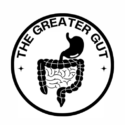Inflammatory Bowel Disease 101
Course Description:
Inflammatory Bowel Disease (IBD) represents a significant and challenging group of chronic gastrointestinal disorders affecting millions worldwide. This comprehensive introduction course aims to provide healthcare professionals with an in-depth understanding of IBD, including its epidemiology, etiology, pathophysiology, clinical manifestations, diagnosis, and current treatment approaches. Led by expert instructors, this course will delve into the intricacies of IBD to equip participants with the knowledge and skills necessary for effective management and patient care.
Course Objectives:
- Provide an overview of the epidemiology and global burden of Inflammatory Bowel Disease.
- Explore the underlying etiology and pathophysiology of Crohn’s disease and ulcerative colitis, the two main forms of IBD.
- Discuss the clinical manifestations and natural history of IBD, including extraintestinal manifestations and complications.
- Review the diagnostic modalities and criteria used in the evaluation and diagnosis of IBD.
- Examine the principles of evidence-based management and treatment options for IBD, including medical, surgical, and emerging therapies.
- Discuss the psychosocial impact of IBD on patients and strategies for addressing their holistic care needs.
- Provide case-based learning opportunities to apply theoretical knowledge to clinical scenarios and enhance decision-making skills.
- Foster an interdisciplinary approach to IBD management, emphasizing collaboration among healthcare professionals for optimal patient outcomes.
Course Structure:
Epidemiology and Burden of IBD:
- Prevalence and incidence rates
- Geographic and demographic variations
- Economic and societal impact
Etiology and Pathophysiology of IBD:
- Genetic predisposition and environmental factors
- Immunological mechanisms
- Gut microbiota dysbiosis
Clinical Manifestations of IBD:
- Symptoms and disease phenotype variability
- Extraintestinal manifestations
- Complications, such as strictures, fistulas, and colorectal cancer risk
Diagnosis and Evaluation:
- Clinical assessment and history-taking
- Laboratory tests, including inflammatory markers and genetic testing
- Endoscopic and radiological imaging modalities
- Histopathological evaluation and disease classification
Management Approaches:
- Pharmacological therapies: aminosalicylates, corticosteroids, immunomodulators, biologics, and small molecules
- Surgical interventions: indications and outcomes
- Nutritional therapy and dietary considerations
- Integrative and complementary approaches
Psychosocial Aspects of IBD:
- Quality of life issues
- Mental health comorbidities: anxiety, depression, and body image concerns
- Patient education and support strategies
Case Studies and Clinical Scenarios:
- Interactive discussions on real-world cases
- Application of diagnostic and therapeutic principles
- Decision-making and management strategies
Interdisciplinary Collaboration:
- Role of multidisciplinary teams in IBD management
- Effective communication and coordination among healthcare professionals
- Patient-centered care and shared decision-making
This introductory course on Inflammatory Bowel Disease offers a comprehensive foundation for healthcare professionals seeking to enhance their understanding and clinical skills in managing this complex and dynamic condition. Through engaging lectures, interactive discussions, and practical case studies, participants will gain the confidence and expertise necessary to optimize care for patients living with IBD.
